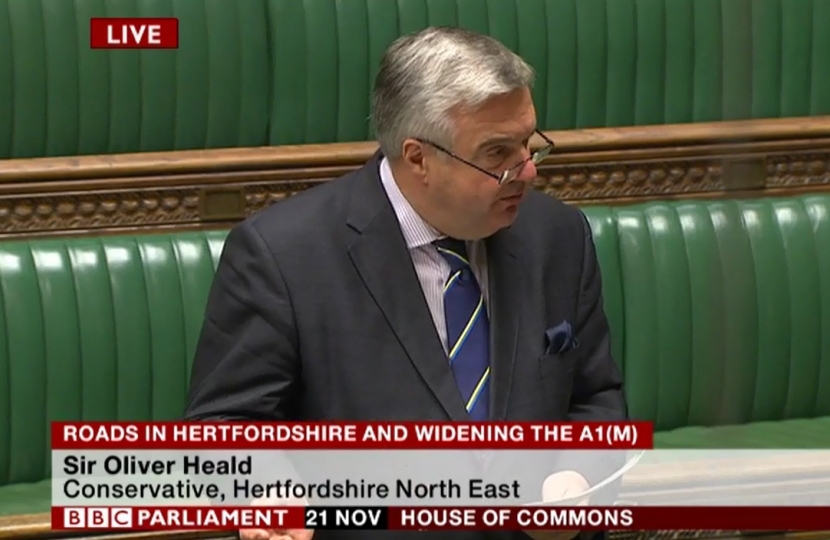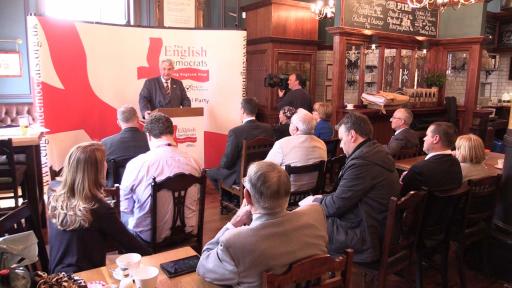Category Archives: Irish Nationalists
Answers to the “England is too big” to have its own Parliament argument
Answers to the “England is too big” to have its own Parliament argument
I have recently been hearing of several Tory MPs who have been doing the rounds making arguments against an English Parliament.
One of those is Sir Oliver Heald MP, who recently spoke at a meeting of Oxfordshire Conservatives, in which he claimed the reason why England could not have its Parliament and Government like the Scottish, Welsh and Northern Irish ones was because England is too big at 85% of the population of the United Kingdom. According to him the provision of an English Parliament would apparently lead to the breakup of the Union because Federal States cannot survive where one part of the State is 85% of the Federation.
On hearing this I immediately responded that first of all one of the things that Federal States always do is have measures in place to balance out the dominance of their larger States. So for example in the United States, California is by far the most heavily populated US State and also the richest. However it only has two Senators, just like Oklahoma in the Federal Congress.
It is also the case that Oliver Heald’s argument does not hold water in terms of history.
The reason the Soviet Union collapsed was not because Russia was “too big”. The USSR collapsed because the Soviet system had become economically bankrupt, partly as a result of the Soviet defeat in war in Afghanistan, but also partly because of the attempt to match American defence spending with regard to Reagan’s “star wars”.
Equally Austro-Hungary did not collapse because Austria was “too big”, it collapsed because Austro-Hungary was defeated in war (also because of the idiocy of Woodrow Wilson’s refusal to negotiate with multi-national states!).
As Oliver Heald’s suggestion as to how to cope with England being “too big” is to split up England into “Regions” of one sort or another (the latest being “City Regions”), my response to him, and any of his ilk, is that any question to which the answer is to split England up is the wrong question.
If the choice is between splitting England up or splitting up the United Kingdom, I have no hesitation in demanding that the split is that of the vastly overrated, expensive, grandiose and laughably decadent United Kingdom.
When it was suggested, before the First World War, that Ireland should have Home Rule and the then Liberal Government forced through Home Rule legislation, Tory troublemakers stirred up Ulster with cries of “Ulster will fight and Ulster will be right”. How much more justification would we English have to fight if the cry was to split England up? Perhaps we should have a cry that “England will fight and England will be right”?
I mention the bloody history of Irish Independence intentionally because unthinking Tory unionists like Oliver Heald MP need to remember that it was Tory intransigence and the refusal to grant the reasonable request for a devolved Irish Parliament and instead the call for Ireland to be split which led not only to the bloodshed of the struggle for Independence but the still worse Civil War. This has stained Irish politics with blood ever since.
The idea that patriotic Englishmen and Englishwomen will not only indefinitely allow England not to have its own proper voice of political expression but also quietly sit by whilst over a thousand years of English history is discarded and England is broken up, is simply crazy. In fact it is not only crazy but it is utterly irresponsible!
Our General Election Press Launch – Even Sky News came too!
Our General Election Press Launch – Even Sky News came too!
As I mentioned in my previous Blog item, over the years we have tried hard to get our press launch covered.
This has always previously been a struggle but this year we did get some interest, both from ITV and, in particular, from Sky, who actually sent a reporter.
We were briefly on the Sky News and also a more detailed report was done for Sky’s website. Here is a link to the article, click here >>> Coalition With Nationalists ‘Would Be Treason’
The text is slightly off what I said because I wasn’t accusing Scottish and Welsh Nationalists of being traitors to their countries, but my point was focussed more on Ed Miliband and the Labour leadership.
But leaving that aside, I think the Sky reporter has done a good job.
What do you think?
The view from the other side of St George’s Channel.


